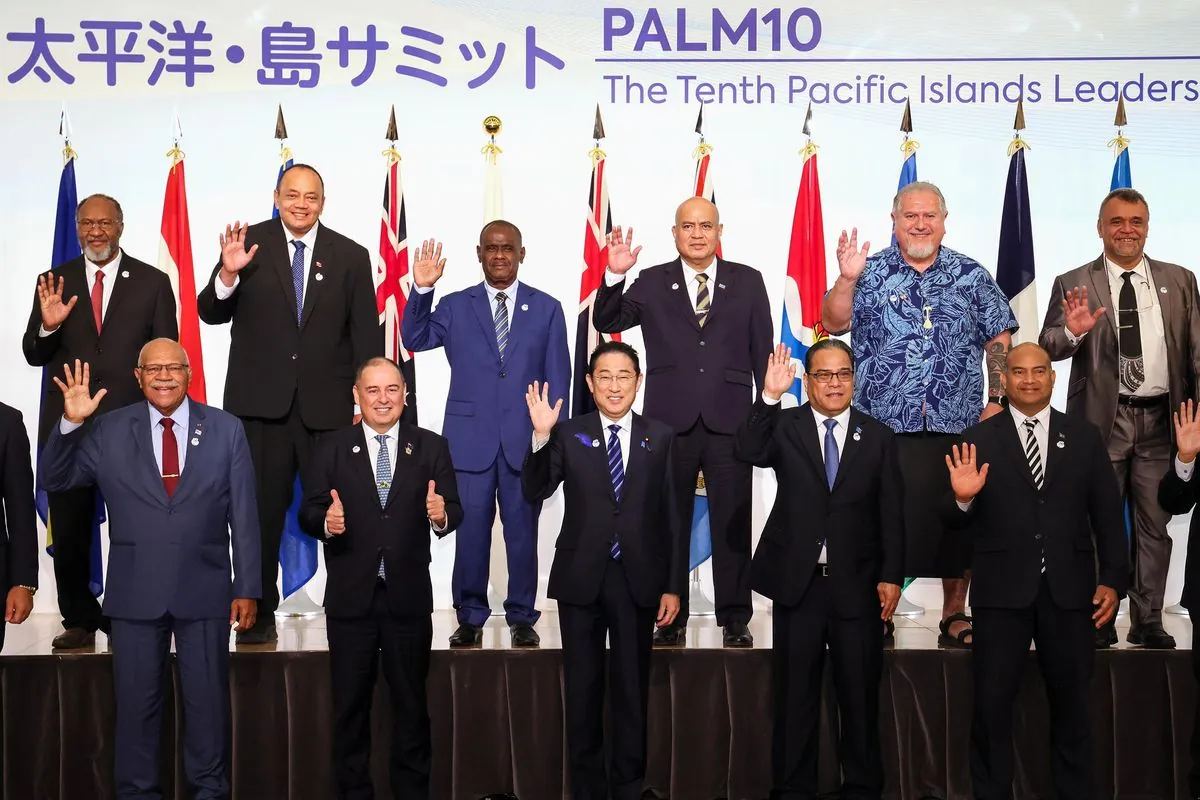Taiwan's diplomatic presence in the Pacific region is set to be reinforced as Tien Chung-kwang, the deputy foreign minister, prepares to attend the upcoming Pacific Islands leaders meeting in Tonga. This development, announced by Taiwan's foreign ministry, underscores the ongoing diplomatic maneuvering in the region involving Taiwan, China, and the United States.
The Pacific Islands Forum, an inter-governmental organization aimed at fostering cooperation among Pacific nations, serves as a crucial platform for regional discussions. Taiwan has been participating in this forum since 1993 under the name "Taiwan/Republic of China" as a development partner, reflecting its complex international status.
Currently, Taiwan maintains formal diplomatic relations with three Pacific nations: Palau, Tuvalu, and the Marshall Islands. These countries, all sovereign states in free association with the United States, have resisted pressure to switch recognition to Beijing. However, Taiwan's diplomatic landscape in the region has faced challenges, as evidenced by Nauru's decision to switch ties from Taipei to Beijing in January 2024, shortly after Lai Ching-te's election as Taiwan's new president.
The competition for influence in the Pacific extends beyond Taiwan and China. The United States, represented by Deputy Secretary of State Kurt Campbell, will also be present at the meeting, highlighting the strategic importance of the region. The vast maritime territories and resources of the Pacific Islands make them a focal point for international attention.
Climate change and security are expected to dominate the discussions at the summit. For many Pacific Island nations, rising sea levels pose an existential threat, making climate action a top priority. The region's history, including past nuclear testing by major powers, adds complexity to security considerations.
"Taiwan is one of its provinces with no right to state-to-state ties"
This statement reflects the ongoing dispute over Taiwan's status, with Taipei strongly contesting Beijing's claims. The "One China" policy remains a contentious issue in international diplomacy, influencing the dynamics of the Pacific region.
The historical context of Taiwan's relations with Pacific nations is noteworthy. For instance, Taiwan and Tonga maintained diplomatic ties from 1972 to 1998, before Tonga switched recognition to Beijing. This shift exemplifies the fluid nature of diplomatic allegiances in the region.
As the Pacific Islands leaders convene, the meeting will likely showcase the intricate balance of power, environmental concerns, and economic interests that define the contemporary Pacific landscape. With only 12 countries now maintaining official diplomatic ties with Taiwan, every international engagement carries significant weight for Taipei's global standing.
